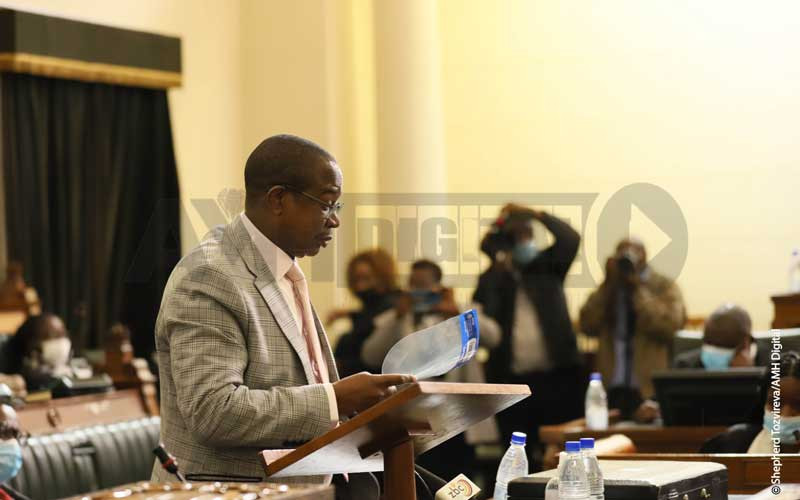
Finance minister Mthuli Ncube has proposed heavy penalties for companies that fail to register with the Zimbabwe Revenue Authority (Zimra) for tax purposes within 30 days of their registration.
The proposal, made during the 2023 national budget presentation in Parliament last Thursday, also seeks to penalise companies that fail to update their registration details with the tax collector within the same period.
The Treasury boss said maintenance of an accurate taxpayer register to facilitate payment of tax, risk management and compliance management was a critical element of tax administration.
However, he said tax administration continued to experience challenges with companies that deliberately opt not to register for tax or taxpayers that do not update their details, rendering the tax register inaccurate.
“I propose to compel all companies to register for tax purposes with the Zimbabwe Revenue Authority within 30 days of such company registration,” Ncube told legislators.
“I further propose to compel taxpayers to update their registration details with Zimra.
“Failure to comply with the above requirements will attract a penalty of US$30 per day.”
Ncube also said the penalty for late submission of tax returns was currently pegged at $30 per day.
- Cars up for grabs in batteries competition
- Africa should be better prepared for Europe’s security funding shift
- Sadc PF wants right to health enforceable
- AG’s report shows growing impunity at the heart of govt operation
Keep Reading
“The penalty is no longer deterrent, hence, I propose to peg the penalty at US$30 payable at local currency equivalent for each day the return remains outstanding,” he said.
The Treasury chief said there were generally low compliance levels with regard to filing of returns and remittance of revenue collected in the currency of trade.
He said some taxpayers were not banking forex receipts, while in other instances, cash sales were receipted offline.
Ncube said the low level of compliance across all categories of registered operators exposed tax administration to fraudulent value-added tax (VAT) claims, thereby undermining revenue collections.
He said taxpayers attributed the low compliance levels to challenges that include high cost of fiscal devices and maintenance thereof; constant replacements due to rapid changes in technology, and lengthy fiscal device software update turnaround times.
“In order to mitigate against the highlighted challenges that mainly emanate from use of physical fiscal devices, it is necessary to adopt virtual solutions that can easily adapt to technological initiatives, thereby complementing the already existing solution,” Ncube said.
“I propose to extend a virtual fiscal solution whereby clients will be linked to Zimra through server connectivity to accounting systems or point-of-sale (POS) solutions. A pilot project using selected compliant clients will be implemented during the second quarter of 2023.”
Ncube said the virtual fiscal solution consists of components that include a data controller, which is installed in each taxpayer’s receipting financial system and records every transaction received from the fiscal device and ensures that an electronic signature on the fiscal tax receipt/invoice is printed.
“The retailer uses an application on a smartphone, tablet or a computer rather than use of specialized physical fiscal devices, which significantly reduces the cost of fiscalisation,” he added.
Ncube said the virtual fiscalisation solution would be supported by a backend solution, hence Zimra was in the process of procuring the system which is expected to be operational during the second quarter of 2023.
Ncube also proposed the use of the fiscalisation back-end system, which provides a platform for managing, monitoring and supporting the fiscalisation back-office applications, operations and processes as well as input data from front-end applications such as point- of-sale and Zimra systems.










